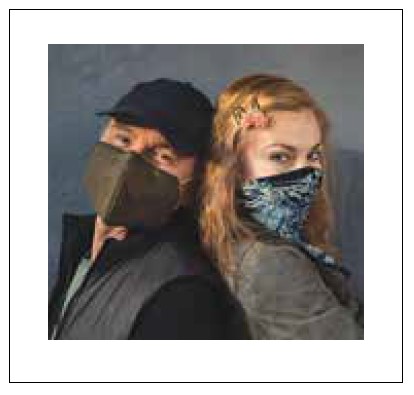
By Jennifer Kroot and Robert Holgate–
Roy Gan is a popular yoga teacher at the Yoga Garden, one of San Francisco’s independent yoga studios. While yoga studios were already having trouble staying open prior to the pandemic, many closed during the shutdown and haven’t reopened. Even the Yoga Works/Yoga Tree franchise, which dominated the San Francisco yoga scene, has closed their doors. As yoga enthusiasts, we’re longtime fans of Roy’s vigorous but mindful vinyasa classes, and wanted to hear more about Roy’s personal story and how the Yoga Garden survived the pandemic.
Jennifer Kroot & Robert Holgate: What was your path to becoming a yoga teacher?
Roy Gan: I used to be a ballet dancer … but let me back up.
I’m from Singapore, and tried the whole pleasing my parents thing, so I went to law school. But I grew up watching old Fred Astaire and Ginger Rogers films, and loved dance since I was nine. Something deep within me wanted to pursue dance as a vocation, but there weren’t many opportunities in Singapore. I was lamenting that I was too late, because by the time I started ballet I was in my 20s. I just fell in love with the mechanical expression of it.
In Singapore I had to join the army, and three years passed before I had an opportunity to train in the U.S. with a ballet coach. My first professional contract didn’t happen until I was 28! I danced in companies in Denver, Charleston, the Dakotas, and, finally, in Sacramento.
After ten years of dancing professionally, it was no longer a joy. My body was hurting and I was done, yet I still wanted to do something physical. So, I took my first yoga class, and I realized I could teach. I wasn’t very familiar with yogic philosophy then, but I was studying A Course in Miracles, and saw many similarities between the two. I’ve always been a spirituality junkie!

Jennifer Kroot & Robert Holgate: Were you out in Singapore?
Roy Gan: I was in denial of my sexuality for a long time. Singapore was very conservative when I was growing up. I knew I enjoyed being in the company of men, but I didn’t know whom to talk to about my feelings.
America was the beacon of freedom, which, of course, isn’t entirely true, right? America has its problems, like racism and bigotry, and I’ve experienced some of that. But being away from my culture and my parents gave me the opportunity to be myself. It took me a couple years to get comfortable and learn to trust. When I came out to my coach, he said, “Yeah, we know!” It was like so obvious that I’m gay, but it was nice to no longer hide that aspect of myself. As a child I couldn’t process the emotions. I call it a “tsunami of emotions”—to feel such shame and guilt over something you are in this incarnation.
For much of my life, I felt like a fraud, which is a common human experience. It’s like living with a mask on. My coach would say, “You have an alien on your face,” and I’d say, “What alien?” because I just didn’t see it. So, I decided I needed to take charge of the rest of my life.
Jennifer Kroot & Robert Holgate: Many yoga studios have closed, but the Yoga Garden recently reopened. How did they adapt to Covid?
Roy Gan: We talk a lot about flexibility in yoga, and flexibility means you can mold yourself into any situation.The owner, David Nelson, knew it was a time to shift, and has a great new vision for the company, offering live classes, live-streaming classes, and recorded classes. Now our classes are available to people anywhere in the world. There’s a beauty to that inclusivity, to connect with people from all walks of life. Several students moved away during the pandemic, and I love seeing them again online.
Jennifer Kroot & Robert Holgate: How do you come up with the philosophical themes for your classes?
Roy Gan: I don’t overthink yoga philosophy. I used to plan a theme for each class, but now I let it happen naturally. I pull from my life experience. I’m turning 48 this year, and you know, s–t happens! I’ve faced massive tragedies in my life, in terms of illnesses and finances. So, I talk about how yoga helped me overcome these experiences. People appreciate that. We all carry wounds. We all want to heal and connect to the part of ourselves that is loving and accepting.
For More Information
https://roygan.com/
https://www.yogagardensf.com/
Jennifer Kroot is a filmmaker known for her award-winning LGBTQ themed documentaries, including “The Untold Tales of Armistead Maupin” and “To Be Takei.” She studied filmmaking at the San Francisco Art Institute, where she has also taught. She is a member of The Academy of Motion Picture Arts and Sciences.
A humanitarian, as well as a designer, Robert Holgate is dedicated to critical social issues. With his hands-on approach to philanthropy and social justice, he supports the advancement of local and national social causes. For more information: https://www.rhdsf.com/
Published on July 15, 2021
Recent Comments